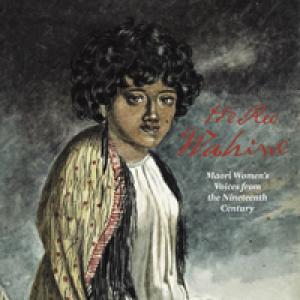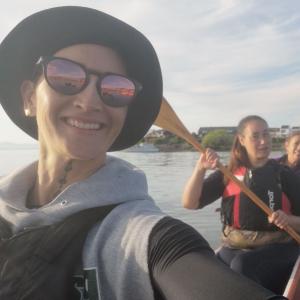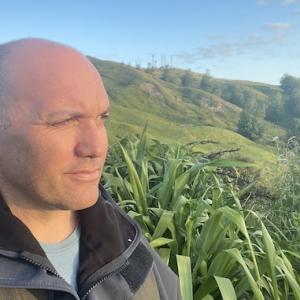Kei mea mai koe he Tane nana tenei Pukapuka Kahore he wahine au nama (sic) tenei pukapuka.
Me aroha mai pea koe kiau no te mea kokoe te tino Kawana o Nuitireni koinei i mea atu ai tenei wahine pohara kia koe kia homaiekoe Ngautu oenei pihi whenua kiau.
Do not think that this letter is from a man. No, I am a woman who wrote this letter.
You should perhaps have sympathy for me because you are the eminent Governor of New Zealand. That is why this poor woman asks you to give me payment for these pieces of land.
- Kataraina Kahuwahine. 1851.
Historian, University of Otago academic and NPM Investigator Associate Professor Angella Wanhalla (Kai Tahu) has recently launched the book He Reo Wāhine: Māori Women's Voices from the Nineteenth Century.
He Reo Wāhine was written in collaboration with Associate Professor Lachy Paterson from Te Tumu: School of Māori, Pacific and Indigenous Studies at the University of Otago and this bold new book rediscovers the lost voices of Māori women from nineteenth-century New Zealand through their own words – and largely in Te Reo Māori.
The speeches, letters and testimonies that are contained within the book demonstrate the vibrant culture of powerful and learned women, that existed then and still exists today.
He Reo Wāhine draws from over 500 texts, many written in te reo Māori, by these nineteenth century women and expresses their concerns around land sales, war, confiscations and compensation, politics, petitions, legal issues and religion.
Drawing from NZ's considerable archives, this book provides a rare glimpse into how Māori engaged with colonial institutions from a womens perspective - and demonstrates how they much they understood about what was happening to their way of life and how they needed to engage with the legal systems in order to protect their whānau and hapū.
Angela Wanhalla recently said in an interview with The Wireless; "I think the stories that are in He Reo Wāhine will matter to a lot of people because they will see their tūpuna there and they’ll see the people that they can really admire represented in this book. I want to write histories where my father can recognise himself in it and he can recognise his family. Where my brother and sister can recognise themselves too. I think that historians have to do our best to actually represent the diversity of the past in the present day, as much as we possibly can. Because if we don’t, we effectively exclude people from history. And I don’t want to write histories that exclude. That’s why He Reo Wāhine exists."
There are also some deeply personal texts within the book. This is a just a few lines from a mōteatea or waiata tangi that was written by Te Paea Rangiataahua in July 1856, for her husband, and sent into the Māori-language newspaper, Te Karere Māori for publication.
Ka ngaro ra e taku manu kohe ata.
Tena ka tiu, ka wehe i a au, i
For he who was my talking bird, that sung.
So sweetly at the dawn of day, has
Disappeared forever from my gaze
He Reo Wāhine: Māori Women's Voices from the Nineteenth Century is published by AUP and is available in hard copy or ebook here.

He Kōrero | Our Stories
Neuroscientist Nicole Edwards is establishing her own lab at the University of Auckland and is eager to tautoko students interested in a career in brain research.
AUT senior lecturer Deborah Heke encourages wāhine Māori to cherish their connection with te taiao.
Tairāwhiti local Manu Caddie is a vocal critic of forestry companies engaged in unsustainable land practices in the rohe. He shares his insights on what needs to change".


